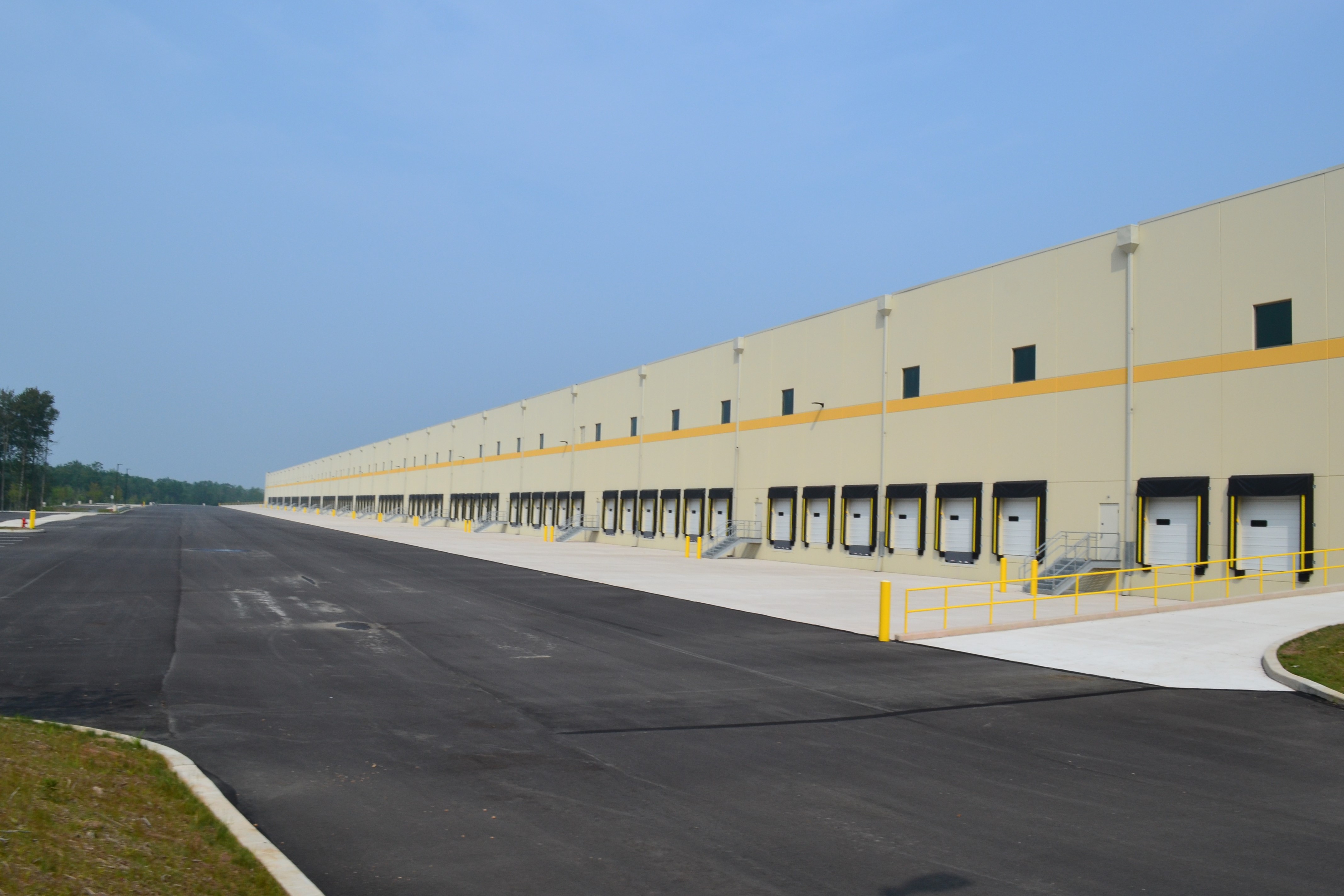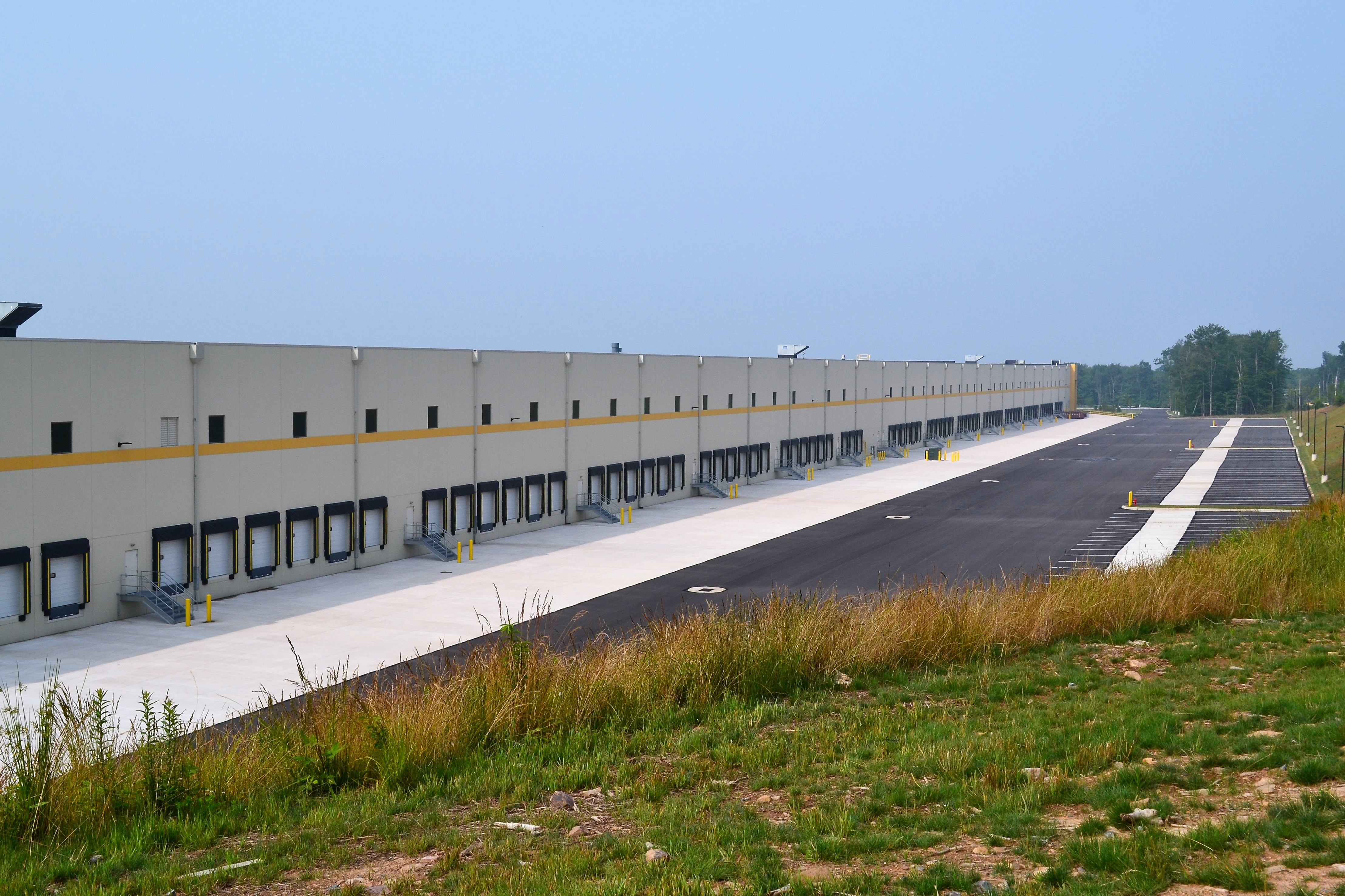PennFuture Blog
Our Perspectives on the Latest Issues
Kidder Township Adopts PennFuture Model Logistics Ordinance Over Objections of Distribution Center Developer
 Kidder Township is the quintessential Poconos community. It is home to Hickory Run State Park, Jack Frost and Big Boulder ski resorts, Lake Harmony, thousands of acres of state game land, and countless Special Protection waters and wetlands, including the headwaters of the Lehigh River. But, in recent years, residents have witnessed an unwelcome shift in the landscape. It began in 2023 with the construction of a 1.1 million square foot distribution center that converted 45 acres of woodland in the Lehigh River watershed to impervious surface. Later that year, the Township approved a second massive distribution center along the same road. Within weeks of that approval, the Township received plans for a third project, a 420,000 square foot warehouse across the road from the first building that would pave over an additional 46 acres of forest.
Kidder Township is the quintessential Poconos community. It is home to Hickory Run State Park, Jack Frost and Big Boulder ski resorts, Lake Harmony, thousands of acres of state game land, and countless Special Protection waters and wetlands, including the headwaters of the Lehigh River. But, in recent years, residents have witnessed an unwelcome shift in the landscape. It began in 2023 with the construction of a 1.1 million square foot distribution center that converted 45 acres of woodland in the Lehigh River watershed to impervious surface. Later that year, the Township approved a second massive distribution center along the same road. Within weeks of that approval, the Township received plans for a third project, a 420,000 square foot warehouse across the road from the first building that would pave over an additional 46 acres of forest.
With no end to the destruction of their precious natural resources in sight, Kidder Township residents sprung into action. Local advocacy groups LOVE Kidder Township and Save Carbon County rallied concerned community members to stop the unrestrained development of massive logistics facilities. They waded into the complex world of local and state land use approval processes and organized members to attend meetings and communicate their concerns to local and state decision-makers. They engaged an engineer to review the most recent warehouse proposal and identify key environmental issues. Most importantly, they did not just offer resistance and antagonism–they offered solutions.
As LOVE Kidder Township and Save Carbon County quickly realized, the explosion of massive logistics facilities in Kidder Township was facilitated by the Township’s overly-permissive zoning ordinance. Under the existing ordinance, warehouses, distribution centers, and truck terminals (as these types of facilities are variously called) were all allowed as permitted uses in the Township’s commercial and business/light industrial zoning districts. Few, if any, restrictions applied to these uses beyond basic lot size and setback requirements. The absence of more stringent requirements or a public review process meant that Township officials had little ability to reign in massive logistics development, even if they and the residents wanted to. The advocacy groups came to understand that, if residents and the Township wanted more say in what was built in their community, they needed more robust zoning regulations. For help in crafting those regulations, Kidder Township residents turned to PennFuture.
Through the advocacy of LOVE Kidder Township and Save Carbon County, Living with Logistics, PennFuture’s model logistics use ordinance and guidebook, became the blueprint for Kidder Township’s reconsideration of its zoning ordinance, and on September 12, 2024, the Board of Supervisors adopted a zoning ordinance amendment that imposes new, more appropriate restrictions based on PennFuture’s model.
 Perhaps the most significant change to the Kidder Township zoning ordinance is that all logistics uses are now conditional uses and allowed only in the Business Development/Light Industrial District. Designating these uses as conditional uses instead of allowing them “by-right” means that applicants will now have to prove, at a public hearing before the Board of Supervisors, that their proposed warehouse/distribution center/truck terminal satisfies the requirements of the zoning ordinance. These hearings will also provide an opportunity for the public to question applicants about their proposals and, if they so desire, to present their own evidence. The conditional use process also allows the Board of Supervisors to impose conditions upon approval, an option that is not available for “by-right” uses.
Perhaps the most significant change to the Kidder Township zoning ordinance is that all logistics uses are now conditional uses and allowed only in the Business Development/Light Industrial District. Designating these uses as conditional uses instead of allowing them “by-right” means that applicants will now have to prove, at a public hearing before the Board of Supervisors, that their proposed warehouse/distribution center/truck terminal satisfies the requirements of the zoning ordinance. These hearings will also provide an opportunity for the public to question applicants about their proposals and, if they so desire, to present their own evidence. The conditional use process also allows the Board of Supervisors to impose conditions upon approval, an option that is not available for “by-right” uses.
Kidder Township’s new ordinance also adopts many of the other provisions suggested in PennFuture’s model. For example, using language provided by PennFuture, the ordinance prohibits the removal of more than 50% of the woodland on any given site, creates riparian buffers, requires developers to submit Environmental Impact Statements, and obligates developers of high traffic-volume facilities to provide overnight parking and other driver facilities. Township officials also made changes to the model ordinance language as they saw fit, as was entirely appropriate. For example, the Township reduced the suggested building setbacks and opted to forgo language offering developers credit for using impervious pavement.
The path to adoption was not without obstacles. Blue Ridge Real Estate (BRRE), the entity that developed the existing 1.1 million square-foot distribution center and seeks approval for a second facility across the street (and owns dozens of additional parcels in the Township) vehemently opposed the ordinance amendment. Realizing that the ordinance amendment would spell the end of relatively unconstrained warehouse and distribution center development, BRRE incorrectly branded the amendment as unconstitutional and erroneously claimed that it would render some of its properties undevelopable. The Board of Supervisors was not swayed by these scare tactics, however, and concluded that the new ordinance strikes an appropriate balance between the Township’s economic interests and protecting its sensitive environmental areas.
As LOVE Kidder Township and Save Carbon County have shown, residents who join together and present solutions to local environmental concerns can make big changes in the shape of their community. Kidder Township now joins the growing number of municipalities to adopt PennFuture’s model ordinance or portions thereof, including Palmer Township, Northampton County, and Coolbaugh Township, Monroe County. PennFuture is proud to offer the resources to help municipalities in this important work.
See some of these resources for yourself by clicking the following links:
- Living With Logistics: A Model Logistics Use Zoning Ordinance for Pennsylvania Municipalities
- Putting Warehouse Development in its Place: A Community Toolkit
- Public Participation, Public Power: A Community Guide to Land Use Decision-Making in Pennsylvania
PennFuture is ramping up our efforts to connect economic development to environmental issues to promote a healthy economy, healthy communities, and a healthy environment. If you’d like to support our efforts on sustainable economic development in Pennsylvania, please consider becoming a member today. Your support is what makes resources like this possible.
BLOG SEARCH
LATEST BLOG POSTS
TAG CLOUD
Get the Latest onOur PennFuture
Sign up for email updates on the latest news, events, and opportunities to make a difference.